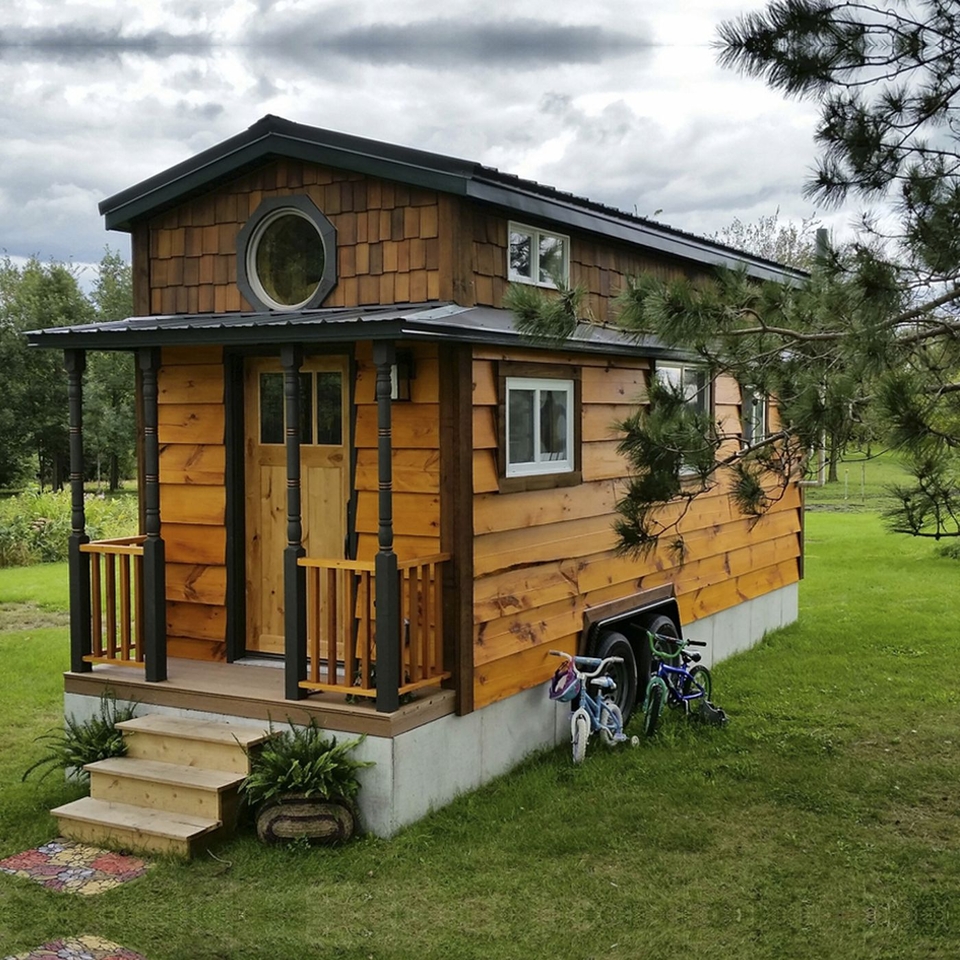
Tiny Homes are not RVs- If a manufacturer of Tiny Homes intends its units to serve as a permanent residence — and markets its Tiny Home products to consumers for that purpose — then these units cannot and should not be considered as RVs.
The Canadian Recreational Vehicle Association (CRVA) is often contacted by companies and individuals who are considering purchasing or are already actively engaged in building structures known or referred to as “Tiny Homes.”
Given a recent uptick in these enquiries, we wish to take this opportunity to comment on the trend and provide our thoughts on the subject.
We hope that the following information will help guide you to make an informed decision.
Who is the Canadian Recreational Vehicle Association (CRVA) and who do we represent?
The Canadian Recreational Vehicle Association (“CRVA”) is a Canadian not-for-profit organization in existence for over 45 years. CRVA works closely with accredited companies to develop the standards and codes designed specifically for Recreational Vehicles with a mandate to ensure that professional standards are maintained in the best interests of the consumer.
The CRVA is comprised of the leading RV Manufacturers and Component Suppliers in addition to companies with services such as marketing, media, insurance and financial organizations specializing in the RV industry. CRVA draws on this wealth of experience and technical know-how to keep abreast of current trends and technical improvements by constantly reviewing design concepts and manufacturing advances.
What is a Recreational Vehicle (RV)?
As per CSA, the definition of a Recreational Vehicle (RV) is as follows— “A vehicular-type unit that is primarily designed as temporary living quarters for recreational, camping, or seasonal use; has its own motive power or is mounted on or towed by another vehicle; does not require a special highway use permit for operation on the highways; and can be easily transported and set up on a daily basis by an individual”
Recreational Vehicles for the Canadian market are designed and built to either the CSA Z240 RV Series (Canadian) or NFPA 1192 (United States) Certification for Recreational Vehicles (other than Park Models) and CSA Z241 Series for “Park Model Trailers”.
Certification of RVs to the CSA Z240 RV Series and CSA Z241 “Park Models” can only be made by accredited agencies approved by the Standards Council of Canada (SCC) as the certification requirements deal with not only technical issues and components but also the quality system of the manufacturer.
Key Facts
The most important fact to take away from the above is that RVs are purposely-built as temporary accommodations for camping and seasonal use only. They are not intended nor should be classified as houses; nor are they manufactured housing; and they are neither designed for nor intended to serve as permanent habitations.
Can Tiny Homes be considered as RVs?
If a manufacturer of Tiny Homes intends its units to serve as a permanent residence — and markets its Tiny Home products to consumers for that purpose — then these units cannot and should not be considered as RVs.
Instead, such Tiny Homes are required by law to comply with local building code regulations for Manufactured Housing.
Why would a “Tiny Home” builder wish to have their product certified as a RV?
The answer to this question is on many “Tiny Home” websites. You just need to look for phrases like “all of our tiny homes are CSA Certified Z240 RV and qualify for financing and insurance coverage”.
Most if not all RV Lenders will not finance “Tiny Homes” with a traditional RV loan but rather would look at offering the consumer a mortgage or alternative loan which is much harder to get. Similarly, Insurance Companies that market RV coverage would not offer the same product for residential Tiny Homes.
Summary
The most critical questions to ask yourself when making a determination between a “Tiny Home” and a RV- “What is the intended use of the product?” “Who are the customers and how will they be using the product?” and “How will this product be regulated?”
Any answers to the above which may be contrary to the definition and regulation of a RV should guide you to make an informed decision.
It is now more important than ever that we work as an Industry to broaden the line between Mobile and Tiny Homes and Recreational Vehicles by ensuring that the appropriate certification and standards are maintained for the respective products. Failing this, CRVA is extremely concerned that we will see an accident occurrence (s) of harm or worse experienced by a consumer residing in a structure not intended for its current use.
____________________________________________________________________
CSA comments:
“CSA does not certify prefabricated homes (tiny, small or others) that do not comply fully with A-277 and/or Z240-MH. Also, CSA are not certifying park model trailers or recreational vehicles that are marketed or advertised as year-round dwellings or tiny homes. It should be noted that there are no written requirements for prefabricated homes (tiny, small or others) that do not meet the requirements of A-277 or Z240-MH, therefore CSA cannot offer a certification program. CSA would only consider offering a “Tiny Home” certification program if there were published requirements.”